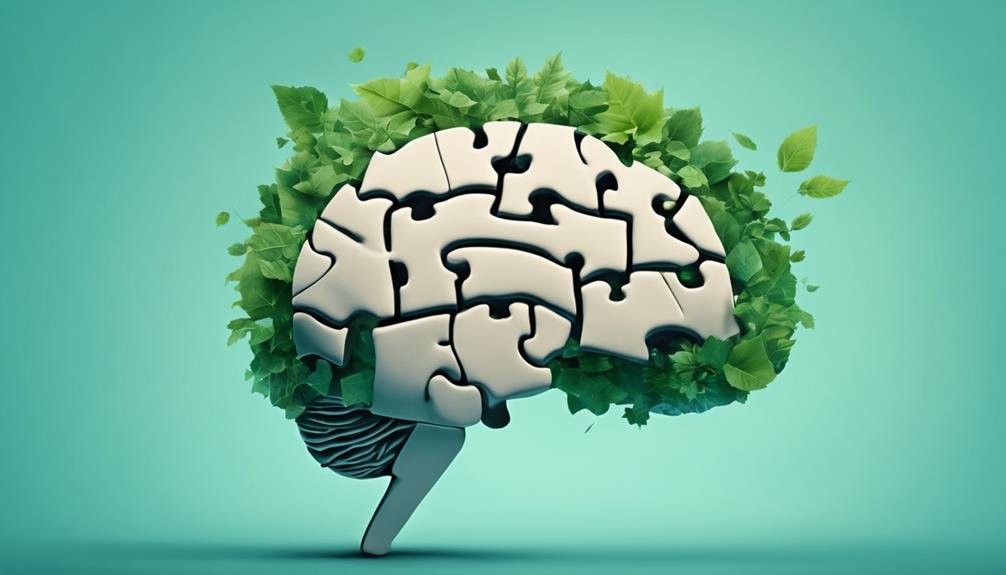
To fuel your body for success, focus on consuming the right balance of macronutrients, including carbohydrates, protein, and fat. Aim for 0.8-1 gram of protein per kilogram of body weight from lean meats, fish, eggs, dairy, and plant-based options. Balance your calorie intake with a mix of carbohydrates, protein, and healthy fats, targeting 2,500-3,000 calories per day. Prioritize hydration by drinking at least eight 8-ounce glasses of water daily. Eat 3-5 main meals and 2-3 snacks every 3-4 hours to maintain stable energy levels. By understanding these fundamental principles, you'll be well on your way to optimizing your nutrition for peak performance.
Key Takeaways
- Focus on a balanced diet with 45-65% carbohydrates, 10-35% protein, and 20-35% fat for optimal health and fitness.
- Prioritize protein quality, aiming for 0.8-1 gram of protein per kilogram of body weight from lean meats, fish, eggs, and plant-based options.
- Drink at least eight 8-ounce glasses of water per day, adjusting based on climate, activity level, and overall health for proper hydration.
- Eat 3-5 main meals and 2-3 snacks every 3-4 hours to maintain stable energy levels and support muscle growth and recovery.
Macronutrients for Male Health

When it comes to maintaining optimal health, you'll want to focus on consuming the right balance of macronutrients – carbohydrates, protein, and fat – which provide energy, support muscle growth and repair, and regulate various bodily functions.
As a man, it's essential to prioritize protein quality in your diet, aiming for 0.8-1 gram of protein per kilogram of body weight from sources like lean meats, fish, eggs, dairy, and plant-based options. This will help you build and maintain muscle mass, which is crucial for overall health and fitness.
In addition to protein, you'll also want to pay attention to your calorie intake. Your daily calorie needs will depend on your age, weight, height, and activity level. Generally, men require 2,500-3,000 calories per day, but this can vary.
Make sure to balance your calorie intake with a mix of carbohydrates, protein, and healthy fats to support energy production and overall health. By focusing on protein quality and calorie intake, you'll be well on your way to fueling your body for optimal health and performance. By making informed choices, you'll be able to achieve your health goals and feel your best.
Building Blocks of Nutrition
As you focus on building a strong nutritional foundation, it's essential to understand the core components that make up a balanced diet.
You'll want to ensure you're getting the right mix of macronutrients, including carbohydrates, protein, and healthy fats, to support optimal energy and overall health.
Macronutrient Balance
Maintaining a balanced mix of carbohydrates, protein, and fat – the three main macronutrients – is crucial for optimal health and performance, and you can achieve this by understanding the role each plays in your body. A well-balanced diet provides the necessary fuel for your body to function properly, and it's essential to get the right mix of macronutrients to support your overall health and fitness goals.
Carbohydrates provide energy for your body, with a recommended daily intake of 45-65% of total calories.
Protein is essential for muscle growth and repair, with a recommended daily intake of 10-35% of total calories.
Fat is necessary for hormone production and absorption of vitamins, with a recommended daily intake of 20-35% of total calories.
Aim for a balanced macronutrient ratio of 25:40:35 (carbohydrates:protein:fat) for general health and fitness.
Adjust your macronutrient ratios based on your individual needs, such as increasing protein for muscle gain or decreasing carbohydrates for weight loss.
Essential Vitamins
ISCOISCOISCOISCOISCOISCOISCOISCOISCOISCOISCOISCOISCO
ISCOISCOISCOISCOISCOISCOISCOISCOISCOISCOISCOISCOISCO
ISCOISCOISCOISCOISCOISCOISCOISCOISCOISCOISCOISCOISCO
ISCOISCOISCOISCOISCOISCOISCOISCOISCOISCOISCOISCOISCO
ISCOISCOISCOISCOISCOISCOISCOISCOISCOISCOISCOISCOISCO
ISCOISCOISCOISCOISCOISCOISCOISCOISCOISCOISCOISCOISCO
ISCOISCOISCOISCOISCOISCOISCOISCOISCOISCOISCOISCOISCO
ISCOISCOISCOISCOISCOISCOISCOISCOISCOISCOISCOISCOISCO
ISCOISCOISCOISCOISCOISCOISCOISCOISCOISCOISCOISCOISCO
ISCOISCOISCOISCOISCOISCOISCOISCOISCOISCOISCOISCOISCO
ISCOISCOISCOISCOISCOISCOISCOISCOISCOISCOISCOISCOISCO
ISCOISCOISCOISCOISCOISCOISCOISCOISCOISCOISCOISCOISCO
ISCOISCOISCOISCOISCOISCOISCOISCOISCOISCOISCOISCOISCO
ISCOISCOISCOISCOISCOISCOISCOISCOISCOISCOISCOISCOISCO
ISCOISCOISCOISCOISCOISCOISCOISCOISCOISCOISCOISCOISCO
ISCOISCOISCOISCOISCOISCOISCOISCOISCOISCOISCOISCOISCO
ISCOISCOISCOISCOISCOISCOISCOISCOISCOISCOISCOISCOISCO
ISCOISCOISCOISCOISCOISCOISCOISCOISCOISCOISCOISCOISCO
ISCOISCOISCOISCOISCOISCOISCOISCOISCOISCOISCOISCOISCO
ISCOISCOISCOISCOISCOISCOISCOISCOISCOISCOISCOISCOISCO
ISCOISCOISCOISCOISCOISCOISCOISCOISCOISCOISCOISCOISCO
ISCOISCOISCOISCOISCOISCOISCOISCOISCOISCOISCOISCOISCO
ISCOISCOISCOISCOISCOISCOISCOISCOISCOISCOISCOISCOISCO
ISCOISCOISCOISCOISCOISCOISCOISCOISCOISCOISCOISCOISCO
ISCOISCOISCOISCOISCOISCOISCOISCOISCOISCOISCOISCOISCO
ISCOISCOISCOISCOISCOISCOISCOISCOISCOISCOISCOISCOISCO
ISCOISCOISCOISCOISCOISCOISCOISCOISCOISCOISCOISCOISCO
ISCOISCOISCOISCOISCOISCOISCOISCOISCOISCOISCOISCOISCO
ISCOISCOISCOISCOISCOISCOISCOISCOISCOISCOISCOISCOISCO
ISCOISCOISCOISCOISCOISCOISCOISCOISCOISCOISCOISCOISCO
Mineral Intake
Incorporating adequate mineral intake is crucial for men's overall health, as minerals serve as the building blocks of nutrition, enabling the body to function properly and supporting optimal physical performance. You need to ensure you're getting enough minerals to maintain strong bones, healthy muscles, and a robust immune system.
Calcium is crucial for bone health and muscle function.
Iron is vital for healthy red blood cells and preventing anemia.
Potassium helps regulate blood pressure and supports muscle function.
Magnesium is essential for muscle and nerve function, as well as bone health.
Zinc plays a critical role in immune function and wound healing.
A mineral deficiency can lead to a range of health problems, from mild fatigue to serious conditions like osteoporosis. To maximize mineral absorption, eat a balanced diet that includes a variety of whole foods, and consider consulting with a healthcare professional or registered dietitian to determine the best mineral supplements for your needs. By prioritizing mineral intake, you'll be fueling your body for optimal performance and overall well-being.
Hydration for Peak Performance

To optimize your physical and mental performance, you need to drink enough water to stay properly hydrated, as even mild dehydration can cause fatigue, decreased focus, and reduced endurance. Developing a fluid intake strategy is crucial to ensure you're getting enough water throughout the day. Aim to drink at least eight 8-ounce glasses of water per day, and adjust according to your individual needs based on climate, activity level, and overall health.
The importance of hydration can't be overstated. Water makes up approximately 60% of your body weight and plays a critical role in regulating body temperature, transporting nutrients and oxygen to cells, and removing waste products. Even mild dehydration can cause a significant decline in physical performance, making it essential to prioritize hydration.
Monitor your urine output to ensure you're drinking enough water – if your urine is pale yellow or clear, you're on the right track. By making hydration a priority, you'll be able to perform at your best, whether that's on the job, in the gym, or on the field.
Meal Frequency and Timing
As you focus on optimizing your physical and mental performance, your meal frequency and timing can have a significant impact on your body's ability to function at its best, influencing everything from energy levels to muscle recovery and growth. To maximize your performance, it's essential to develop effective meal planning strategies that take into account your nutrient timing recommendations.
Eat frequently: Aim for 3-5 main meals and 2-3 snacks in between, spaced out every 3-4 hours, to maintain stable energy levels and support muscle growth.
Prioritize protein: Include a source of protein with every meal to support muscle recovery and growth.
Time your carbs: Consume complex carbohydrates before and after workouts to provide energy and support muscle recovery.
Don't forget healthy fats: Include sources of healthy fats, such as nuts and avocados, in your meals to support hormone production and overall health.
Stay flexible: Adjust your meal frequency and timing based on your individual needs and schedule to ensure you're fueling your body for optimal performance.
Boosting Energy and Endurance

Your body's energy and endurance levels can be significantly enhanced by making strategic dietary choices that support your physical and mental performance. As a man, you need a balanced diet that provides the necessary fuel for your daily activities, workouts, and overall well-being. To boost your energy and endurance, focus on consuming complex carbohydrates, lean protein, and healthy fats.
Complex carbohydrates, such as whole grains, fruits, and vegetables, are rich in fiber, vitamins, and minerals that help optimize oxygen uptake and support energy production. Include foods high in iron, like red meat, spinach, and beans, to improve stamina and reduce fatigue. Adequate hydration is also essential for energy production, so drink plenty of water throughout the day.
In addition to your diet, consider incorporating adaptogenic herbs like ginseng and ashwagandha, which can help reduce stress and improve mental clarity. Aim to eat frequent, balanced meals to maintain stable energy levels and support your overall health. By making informed dietary choices, you can optimize your energy and endurance, setting yourself up for success in all areas of your life.
Nutrition for Muscle Growth
When you're looking to build muscle, a well-planned diet that provides adequate protein, calories, and nutrients is just as important as your workout routine. A diet that supports muscle growth should include a balance of protein, complex carbohydrates, and healthy fats.
Protein is essential for building and repairing muscle tissue, while complex carbohydrates provide energy for your workouts. Healthy fats support hormone production, including optimal testosterone levels, which are crucial for muscle growth.
To support muscle growth, focus on the following key nutrients:
- Lean protein sources like chicken, fish, and beans
- Complex carbohydrates like brown rice, sweet potatoes, and whole grains
- Healthy fats like avocado, nuts, and seeds
- Creatine, which can help improve muscle strength and endurance
Supporting Mental Clarity

VMLVMLVMLVMLVMLVMLVMLVMLVMLVMLVMLVMLVMLVMLVMLVMLVMLVMLVMLVMLVMLVMLVMLVMLVMLVMLVMLVMLVMLVMLVMLVMLVMLVMLVMLVMLVMLVMLVMLVMLVMLVMLVMLVMLVMLVMLVMLVMLVMLVMLVMLVMLVMLVMLVMLVMLVMLVMLVMLVMLVMLVMLVMLVMLVMLVMLVMLVMLVMLVMLVMLVMLVMLVMLVMLVMLVMLVMLVMLVMLVMLVMLVMLVMLVMLVMLVMLVMLVMLVMLVMLVMLVMLVMLVMLVMLVMLVMLVMLVMLVMLVMLVMLVMLVMLVMLVMLVMLVMLVMLVMLVMLVMLVMLVMLVMLVMLVMLVMLVMLVMLVMLVMLVMLVMLVMLVMLVMLVMLVMLVMLVMLVMLVMLVMLVMLVMLVMLVMLVMLVMLVMLVMLVMLVMLVMLVMLVMLVMLVMLVMLVMLVMLVMLVMLVMLVMLVMLVMLVMLVMLVMLVMLVMLVMLVMLVMLVMLVMLVMLVMLVMLVMLVMLVMLVMLVMLVMLVMLVMLVMLVMLVMLVMLVMLVMLVMLVMLVMLVMLVMLVMLVMLVMLVMLVMLVMLVMLVMLVMLVMLVMLVMLVMLVMLVMLVMLVMLVMLVMLVMLVMLVMLVMLVMLVMLVMLVMLVMLVMLVMLVMLVMLVMLVMLVMLVMLVMLVMLVMLVMLVMLVMLVMLVMLVMLVMLVMLVMLVMLVMLVMLVMLVMLVMLVMLVMLVMLVMLVMLVMLVMLVMLVMLVMLVMLVMLVMLVMLVMLVMLVMLVMLVMLVMLVMLVMLVMLVMLVMLVMLVMLVMLVMLVMLVMLVMLVMLVMLVMLVMLVMLVMLVMLVMLVMLVMLVMLVMLVMLVMLVMLVMLVMLVMLVMLVMLVMLVMLVMLVMLVMLVMLVMLVMLVMLVMLVMLVMLVMLVMLVMLVMLVMLVMLVMLVMLVMLVMLVMLVMLVMLVMLVMLVMLVMLVMLVMLVMLVMLVMLVMLVMLVMLVMLVMLVMLVMLVMLVMLVMLVMLVMLVMLVMLVMLVMLVMLVMLVMLVMLVMLVMLVMLVMLVMLVMLVMLVMLVMLVMLVMLVMLVMLVMLVMLVMLVMLVMLVMLVMLVMLVMLVMLVMLVMLVMLVMLVMLVMLVMLVMLVMLVMLVMLVMLVMLVMLVMLVMLVMLVMLVMLVMLVMLVMLVMLVMLVMLVMLVMLVMLVMLVMLVMLVMLVMLVMLVMLVMLVMLVMLVMLVMLVMLVMLVMLVMLVMLVMLVMLVMLVMLVMLVMLVMLVMLVMLVMLVMLVMLVMLVMLVMLVMLVMLVMLVMLVMLVMLVMLVMLVMLVMLVMLVMLVMLVMLVMLVMLVMLVMLVMLVMLVMLVMLVMLVMLVMLVMLVMLVMLVMLVMLVMLVMLVMLVMLVMLVMLVMLVMLVMLVMLVMLVMLVMLVMLVMLVMLVMLVMLVMLVMLVMLVMLVMLVMLVMLVMLVMLVMLVMLVMLVMLVMLVMLVMLVMLVMLVMLVMLVMLVMLVMLVMLVMLVMLVMLVMLVMLVMLVMLVMLVMLVMLVMLVMLVMLVMLVMLVMLVMLVMLVMLVMLVMLVMLVMLVMLVMLVMLVMLVMLVMLVMLVMLVMLVMLVMLVMLVMLVMLVMLVMLVMLVMLVMLVMLVMLVMLVMLVMLVMLVMLVMLVMLVMLVMLVMLVMLVMLVMLVMLVMLVMLVMLVMLVMLVMLVMLVMLVMLVMLVMLVMLVMLVMLVMLVMLVMLVMLVMLVMLVMLVMLVMLVMLVMLVMLVMLVMLVMLVMLVMLVMLVMLVMLVMLVMLVMLVMLVMLVMLVMLVMLVMLVMLVMLVMLVMLVMLVMLVMLVMLVMLVMLVMLVMLVMLVMLVMLVMLVMLVMLVMLVMLVMLVMLVMLVMLVMLVMLVMLVMLVMLVMLVMLVMLVMLVMLVMLVMLVMLVMLVMLVMLVMLVMLVMLVMLVMLVMLVMLVMLVMLVMLVMLVMLVMLVMLVMLVMLVMLVMLVML
Focus on Brain Function
Research suggests that men's brains, like their bodies, require specific nutrients to function optimally, and focusing on brain-boosting foods can help support mental clarity and cognitive performance. A well-nourished brain is better equipped to handle the demands of daily life, from work and relationships to physical activity and personal growth.
To support brain function, incorporate these key nutrients into your diet:
- Omega-3 fatty acids: Found in fatty fish, nuts, and seeds, these healthy fats promote brain health and cognitive function.
- Antioxidants: Vitamins C and E, as well as polyphenols, help protect brain cells from damage and support overall neurological health.
- B Vitamins: B6, B9, and B12 play critical roles in synthesizing neurotransmitters and maintaining healthy brain function.
- Magnesium: This essential mineral supports neuronal function and synaptic plasticity.
As you strive to fuel your body for success, don't overlook the importance of cognitive focus and neurological health.
Manage Daily Stress Levels
In order to support mental clarity, you need to develop effective strategies to manage your daily stress levels, which can help minimize its impact on cognitive performance. Chronic stress can impair memory, attention, and decision-making skills, ultimately affecting your overall well-being.
To combat this, it's essential to incorporate mindfulness techniques into your daily routine. Start by practicing deep breathing exercises, meditation, or yoga to help calm your mind and reduce stress hormones.
In addition to mindfulness techniques, it's crucial to develop healthy coping strategies to manage stress. This can include engaging in physical activity, such as walking or jogging, to release endorphins, which can help improve your mood. You can also try journaling or talking to a friend or family member about your stressors. By acknowledging and addressing your stress, you can better manage its impact on your mental clarity.
Healthy Eating Habits
Developing healthy eating habits starts with understanding your individual nutritional needs, which are influenced by factors like age, lifestyle, and overall health status. As you strive to fuel your body for success, it's essential to recognize that one-size-fits-all diets often fall short. By tailoring your eating habits to your unique needs, you'll be better equipped to achieve sustainable weight loss and maintain overall well-being.
To get started, focus on developing healthy eating habits that promote portion control and mindful consumption.
Eat a variety of whole, unprocessed foods, including fruits, vegetables, whole grains, lean proteins, and healthy fats.
Pay attention to serving sizes and control your portions to avoid overeating.
Incorporate healthy snacks into your daily routine to curb cravings and support weight management.
Stay hydrated by drinking plenty of water throughout the day.
Limit your intake of sugary drinks and saturated fats, which can hinder your progress.
Conclusion
You've got the blueprint for fueling your body for success. Now, it's time to put the pedal to the metal and make it happen.
Just like a finely-tuned sports car, your body needs the right mix of macronutrients, hydration, and meal timing to perform at its best. Don't be a rusty old jalopy – keep your engine revving with a balanced diet and healthy habits.
You're the master of your nutritional destiny, so take the wheel and drive towards optimal health.
